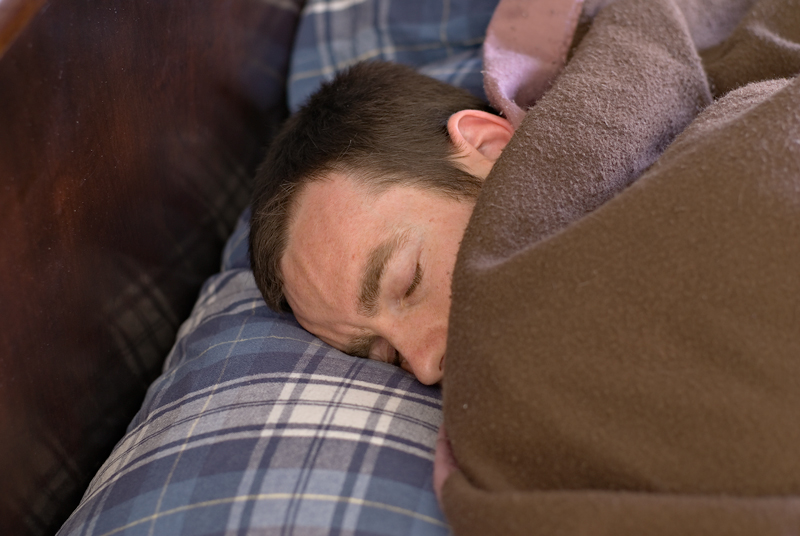Treating Insomnia with Chinese Medicine
 Tuesday, March 30, 2010 at 12:03PM
Tuesday, March 30, 2010 at 12:03PM I often begin blog entries by defining a disease or condition. With
insomnia, however this is almost not necessary as almost every one has
experienced sleeplessness at one time or another. What make insomnia an issue that people will seek an acupuncturist for is chronicity. The fact that it happens frequently, or even every night.

For some clients, insomnia is their sole concern and what drives them to seek us out. Others experience problems sleeping due to other problems, such as menopausal hot flashes (article to come), pain, digestive issues or anxiety (article to be written). In essence, then insomnia is perceived to arise as a result of some sort of physical discomfort, mental stress or anxiety or - far too frequently -without any sort of trigger - the person simply can’t sleep or finds themselves awakening with no clear trigger.
Chinese medicine is extremely effective in managing insomnia from most causes and can restore normal sleep in the vast majority of cases.
Chinese Medical Approach to Insomnia
As with most health issues, an acupuncturist will approach insomnia by evaluating the whole individual. Questions, which may not appear to have immediate bearings on sleep, will help us to determine which pattern of insomnia the individual is living with. By pattern, Chinese medicine is describing a complex of energetic and functional relationships between body systems which, when taken together, create the symptom or disease the individual possesses. Looking up insomnia in a textbook of Chinese medicine one would see described many patterns, each with a different method for treatment. Proper pattern differentiation will lead to effective results. A well trained and experienced acupuncturist will be able to deduce the appropriate protocol based on how the patient presents to us.
If a pattern is treated successfully the patient will gradually find themselves sleeping longer, deeper and more restfully. An added advantage of such a strategy is that once the problem has been successfully resolved and the course of treatment completed, it is rare for an individual to need further treatment for that particular issue.
Research on Insomnia:
- The Chinese Medical Journal studied one particular technique which might be used by an acupuncturist, electro-acupuncture, and its effect upon sleep quality. The study found that this technique was very effective in the majority of patients and also cited an increase in daytime functioning among this cohort. While most acupuncturists would not use this technique as a first resort - simply because other methods are so useful - it would be considered with unusual or recalcitrant cases.
- The Journal of Alternative and Complementary Medicine published a meta-analysis of 43 studies of acupuncture in the treatment of insomnia. A meta-analysis is a statistical means of analyzing multiple research reports and looking a what the cumulative thrust of them is. This meta analysis showed a dramatic trend toward alleviating insomnia in the large majority of studies.
- A Chinese medical journal, Zhongguo Zhen Jiu citing a university teaching hospital's research, looked at the effect of treating one particular pattern of insomnia. It looked at both outcomes (sleeping through the night) as well as changes in blood flow to the brain. The study found that not only did people suffering from this particular type of insomnia improve with acupuncture, but that there was a corresponding increase in blood flow to the parts of the brain which regulate sleep.
- The medical journal, Sleep Medicine Review performed an meta-analysis of 30 studies on acupuncture and insomnia and cautiously concluded that while there was a substantial positive response to acupuncture treatment of sleep disorders (93% of the participants in these studies manifested positive results) more study would be beneficial.
- The psychiatric monthly, The Journal of Neuropsychiatry and Clinical Neurosciences performed a study on anxiety and insomnia. It concluded that not only was sleeplessness dramatically improved by acupuncture treatment, but that several neurochemical markers which are correlated to a good nights sleep were positively altered by this therapy.
- A study of 55 patients with ADHD and insomnia by Wanzhu Hou, Guangpi Xu, James C. Butler and Hanjie Wang, demonstrated 'exceptional' results with these patients.
- A page with a survey of current Chinese medical research on insomnia can be found here. Though couched in the jargon of Chinese medicine, it can give one a sense of what type of research is being done in Asia in an attempt to merge Chinese medicine with modern research techniques.
- A Japanese study on acupuncture on an animal model, readable here, concluded that,
acupuncture benefits sleep. A controlled trial conducted on pigs measured sleep outcomes when the subjects received acupuncture at acupoints GV20 and Dafengmen (an acupoint anatomically similar to human GV20, Baihui). Results were measured using an actigraph (Octagonal Basic Motionlogger) and by measuring catecholamine counts in the urine after the application of acupuncture. Pigs receiving acupuncture at Dafengmen for 20 minutes at a depth of 10-20mm showed significant values on the actigraph and urine analysis showed significant changes in the catecholamine count.
 Alternative Medicine,
Alternative Medicine,  Chinese Medicine,
Chinese Medicine,  Energy,
Energy,  Insomnia,
Insomnia,  acupuncture,
acupuncture,  herbs,
herbs,  sleep in
sleep in  Disorders
Disorders